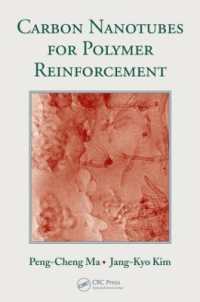Full Description
During Suharto's New Order (1966-1998), the ethnic Chinese expanded Indonesia's economy (and their own wealth) but, paradoxically, were marginalized and discriminated against in all social spheres - culture, language, politics, entrance to state-owned universities, and public service and public employment. Following the fall of Suharto, and the anti-Chinese riots in May 1998, Indonesia underwent a process of "Reformasi" and democratization, whereby for the first time in several decades Chinese culture became more visible. Many ethnic Chinese took advantage of the new democratic space to establish political parties, non-governmental organizations, and action groups in order to fight for the abolition of discriminatory laws, to defend their rights, and to promote solidarity between ethnic groups in Indonesia. They utilized the Reformasi atmosphere to promote pluralism and multiculturalism, and to liberate their long-suppressed identity and cultural heritage. This book dissects the complex meanings of "Chineseness" in post-1998 Indonesia, including the ways in which the policy of multiculturalism enabled such a resurgence, the forces that shaped it, and the possibilities for resinicisation. The author examines the ethnic Chinese self-identify, and investigates how the pribumi "Other" has contributed to identifying the ethnic boundary in terms of race and class. A unique aspect of the study is its discussion of the complexities of the cultural crossing, borrowing, and mixing experience of Chinese-Indonesians through localization and globalization.
Contents
Introduction: A Problematic Identity; Approaches to Accommodating Chineseness; Historical Constructions of Chinese Identity; Chinese "Culture" and Self-Identity; Heterogeneity and Internal Dynamics of Chinese Politics; Re-Emergence of the Chinese Press; "Race", Class and Stereotyping: Pribumi Perceptions of Chineseness; Preserving Ethnicity: Negotiating Boundary Maintenance and Border-Crossing; Conclusion: Reconceptualising Chineseness.







